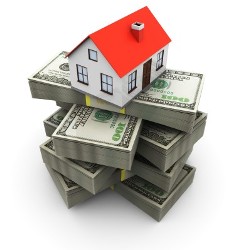An Often-Overlooked Trick Can Help You Afford A Second House
 The whole idea of investing is to use a portion of your money now to get more down the road. It is important for everyone to diversify their investments, and you might be thinking about buying a second house to do so. Investing in real estate is a goal that a lot of people have, but how can you get started? It was challenging enough to buy your first house, so how can you afford a second one?
The whole idea of investing is to use a portion of your money now to get more down the road. It is important for everyone to diversify their investments, and you might be thinking about buying a second house to do so. Investing in real estate is a goal that a lot of people have, but how can you get started? It was challenging enough to buy your first house, so how can you afford a second one?
Use A Cash-Out Refinance To Buy Your Second House
One trick that many people overlook is that they can actually conduct a cash-out refinance to purchase a second house. In general, your lender will allow you to cash out up to 80 percent of the value of your home during a cash-out refinance. This can give you a tremendous amount of flexibility that you can use to purchase a second house. For example, if your house is worth $300,000, you may be able to withdraw tens of thousands of dollars in equity.
What To Consider When Using A Cash-Out Refinance
When you apply for a cash-out refinance, there is a chance that the interest rate on your new loan might change. This might mean that you end up with a higher interest rate than before. You must make sure you can afford this new interest rate. Furthermore, you will be required to pay closing expenses. You need to have enough money set aside to cover those closing expenses. Keep in mind that the term of the loan might change as well. If you were close to paying off your house, this type of refinance might reset that clock. It might take you longer to pay off your mortgage than it did before. Consider these factors carefully before conducting a cash-out refinance.
A Cash-Out Refinance Might Be Right For You
In the end, a cash-out refinance could be a great way for you to withdraw equity from your home, using it to purchase an investment property. On the other hand, you need to ensure you can still afford the new loan after you take that equity out of your home. Work with an expert who can help you find the right option to meet your needs.

 Members of the military, their family members, and veterans have access to a unique mortgage option called a VA loan. This can be a strong option because it provides borrowers with an opportunity to purchase a house for less than 20 percent down. While not everyone is eligible for a VA loan, there are a lot of people who are wondering, are VA loans assumable? There are a few key points to keep in mind.
Members of the military, their family members, and veterans have access to a unique mortgage option called a VA loan. This can be a strong option because it provides borrowers with an opportunity to purchase a house for less than 20 percent down. While not everyone is eligible for a VA loan, there are a lot of people who are wondering, are VA loans assumable? There are a few key points to keep in mind. After you have found the right house to meet your needs, you need to make the down payment to complete the transaction. Can you show up at the closing table with a suitcase full of cash? Of course, that would be a bit suspect, so that is not actually how it happens. What do you need to do to actually hand over the funds to buy the house?
After you have found the right house to meet your needs, you need to make the down payment to complete the transaction. Can you show up at the closing table with a suitcase full of cash? Of course, that would be a bit suspect, so that is not actually how it happens. What do you need to do to actually hand over the funds to buy the house?